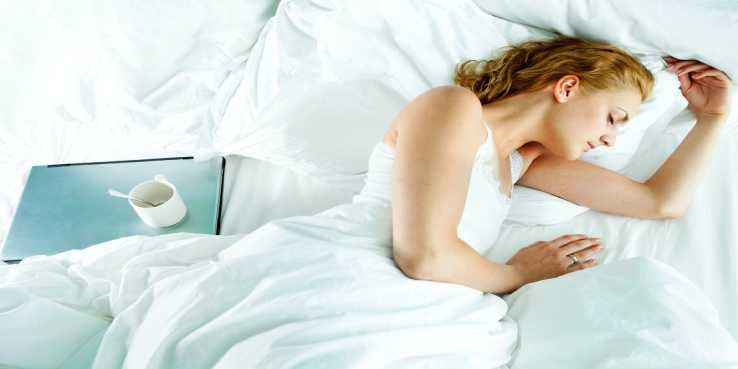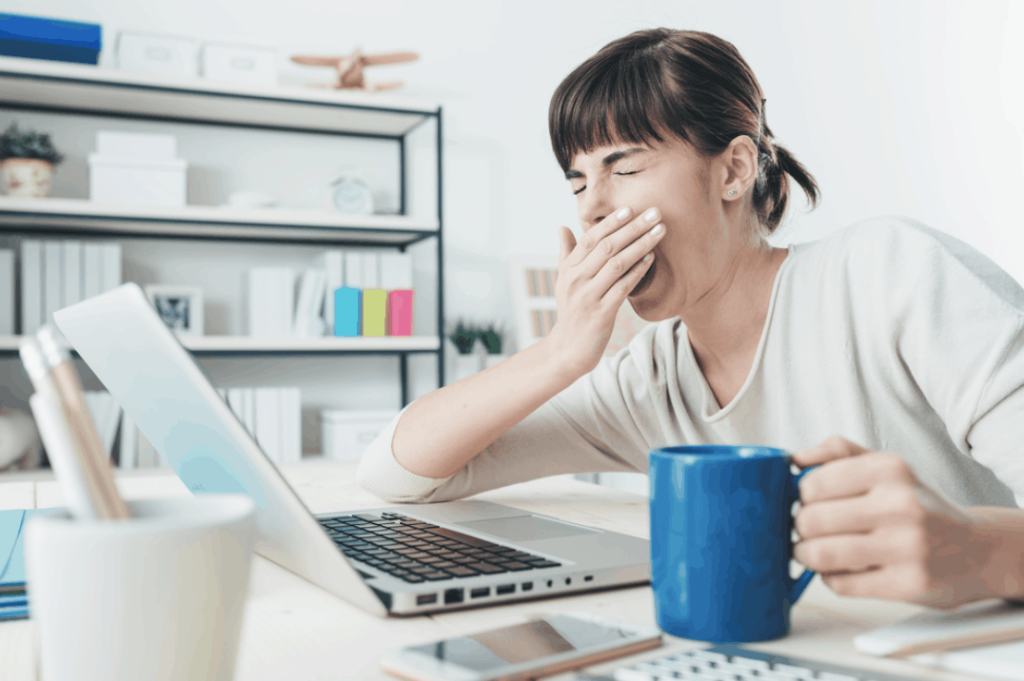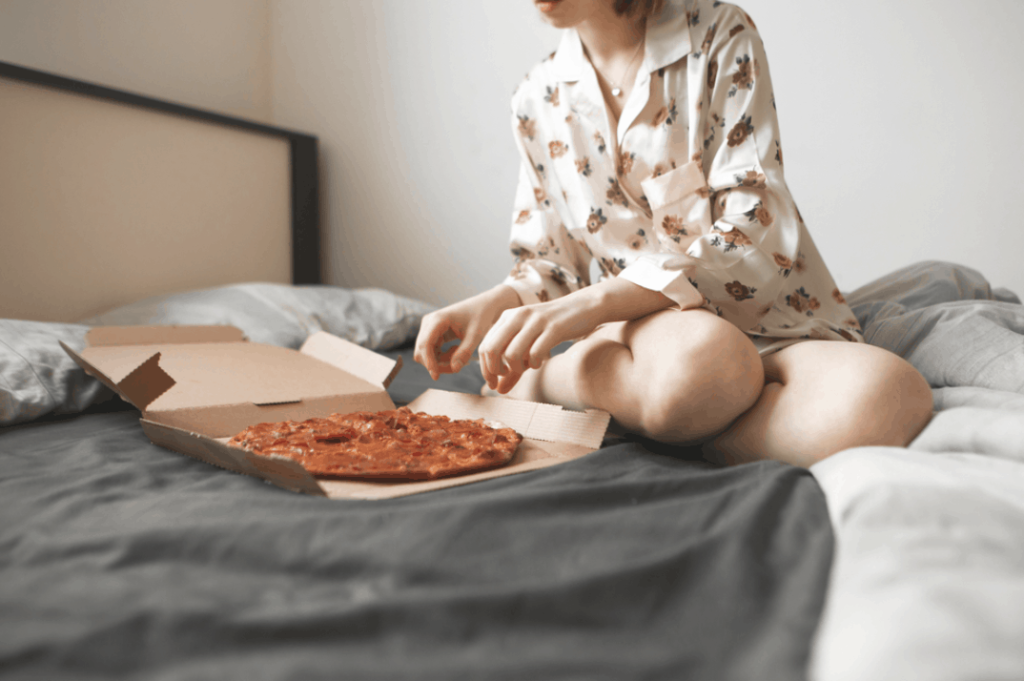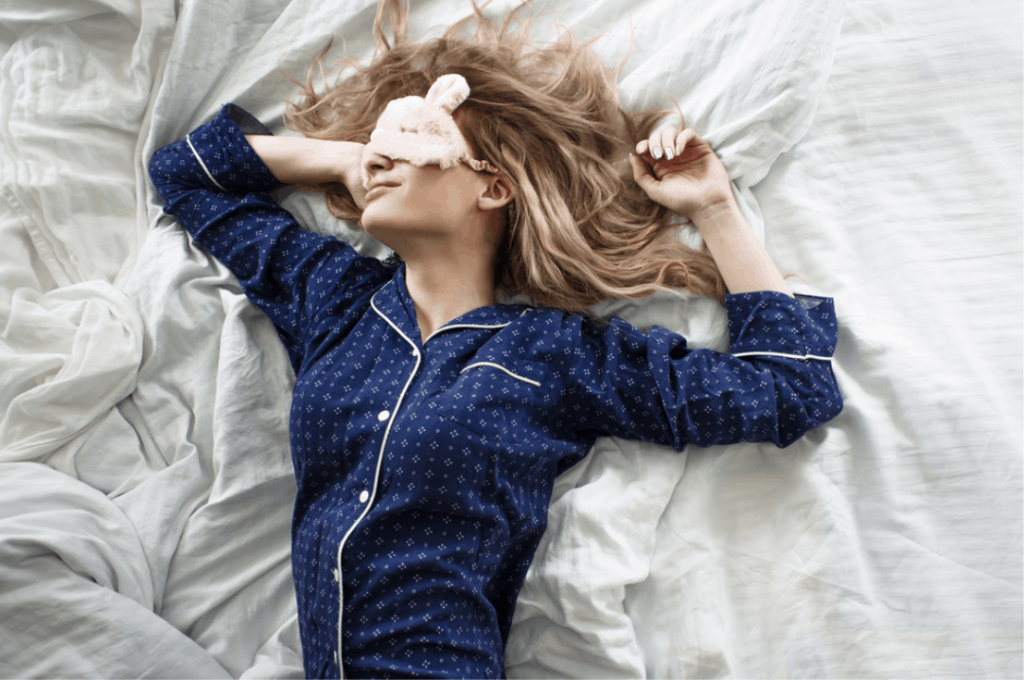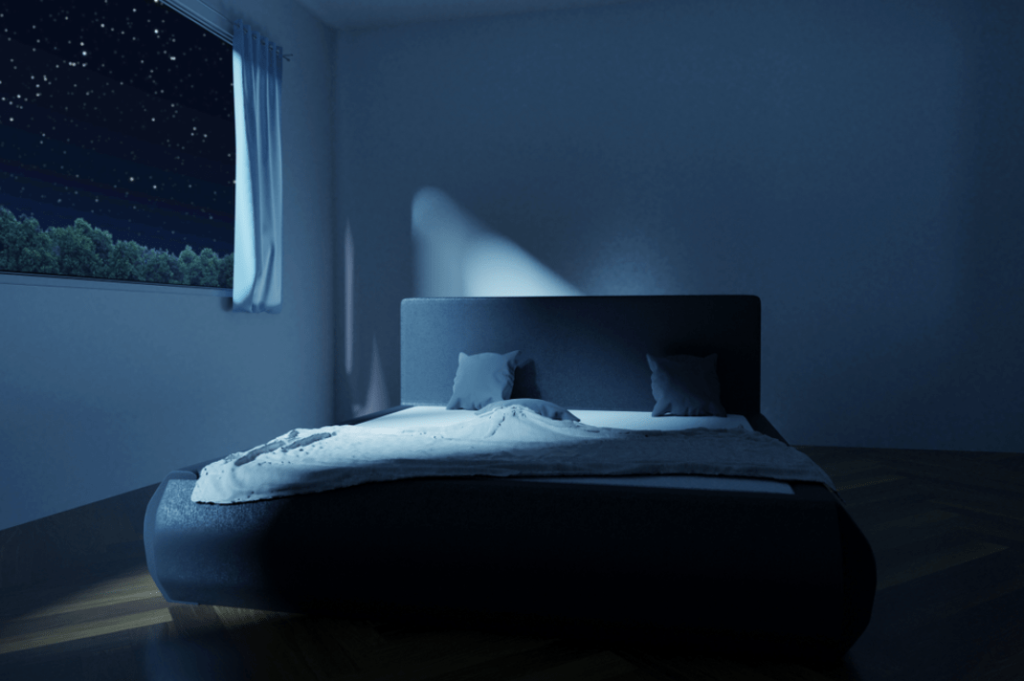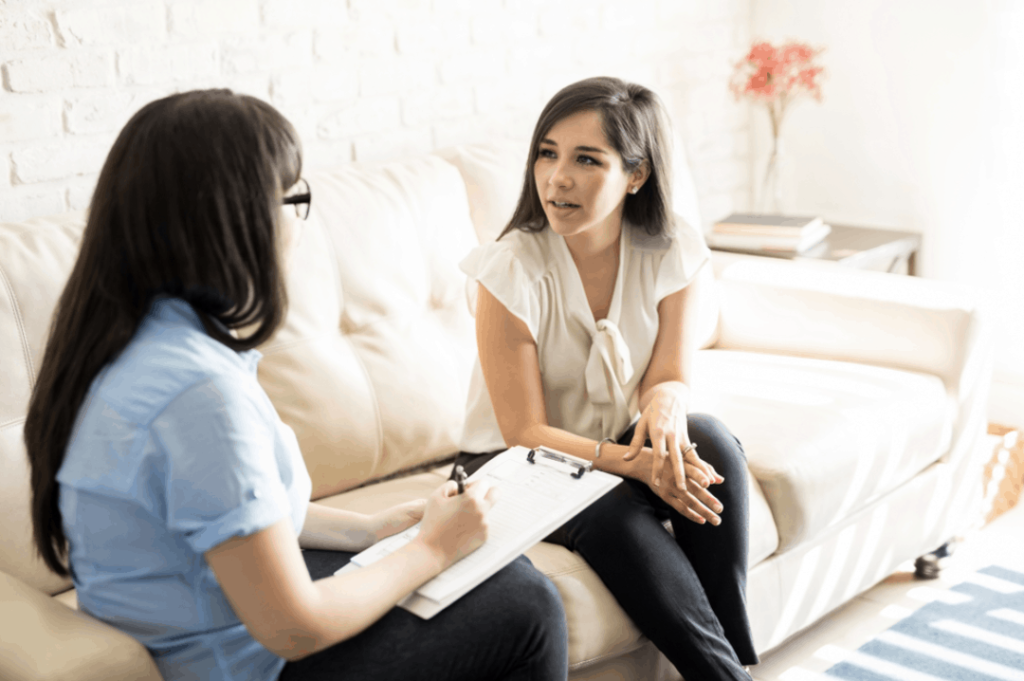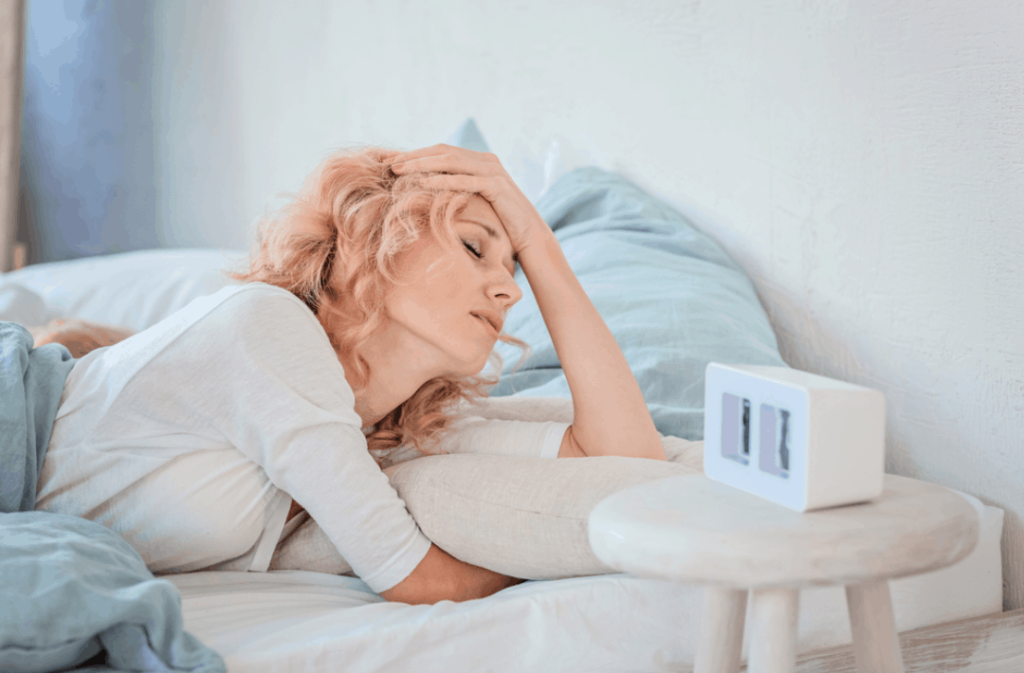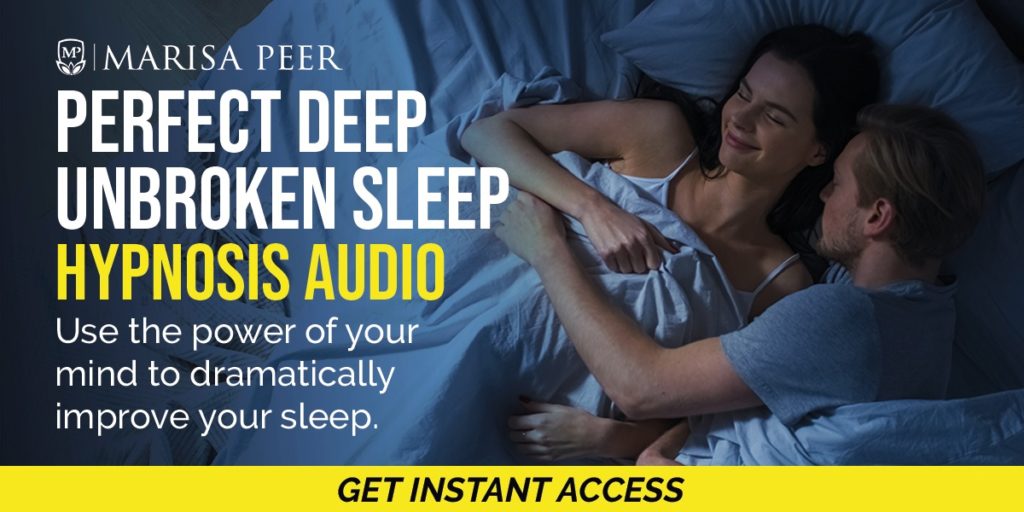Do you think you might benefit from sleep hypnosis? If you are suffering from what feels like incurable insomnia, or generally cannot achieve a night of decent, restful sleep, then it might be time to look into new ways of solving your issue.
Most, if not all of us know that horrible feeling of tiredness after not getting a good night’s sleep. I know that I can feel cranky, pessimistic and generally unwell when I’m sleep deprived.
According to the Sleep Health Foundation, around 1 in 3 people have at least mild insomnia. For whatever reason you are sleep deprived―whether it is stress, noise, or having a sleep disorder like insomnia―it’s important to get to the root cause to turn your sleepless nights into rejuvenating ones. After all, having a good sleeping pattern is essential to being healthy and happy.
In this article, you will learn:
- How much sleep we really need
- What causes sleep deprivation
- What happens when you are sleep deprived
- How to get a good night’s sleep
- Sleep treatments
Let’s get started by finding out how much sleep we really need to be healthy.
How Much Sleep Do We Really Need?
I personally like to aim for around seven hours of sleep a night. I can get by on as little as six, but I feel groggy and unmotivated on any less than that. Things that affect my sleep negatively are: having lights from electrical appliances shining towards my face (my eye mask helps), noises from the elements, having the urge to get up and use the toilet in the middle of the night, and… my partner snoring, very loudly sometimes! You can read more about how to stop snoring here. I also tend to feel the same way when I sleep for more than nine hours.
The National Sleep Foundation teamed together with 18 leading scientists to produce a study on sleep requirements. After two years of research, they agreed on the following ‘rule-of-thumb’ amounts of sleep for people of all ages:
- Newborns (0-3 months): 14-17 hours each day
- Infants (4-11 months): 12-15 hours
- Toddlers (1-2 years): 11-14 hours
- Pre-schoolers (3-5): 10-13 hours
- School-age children (6-13): 9-11 hours
- Teenagers (14-17): 8-10 hours
- Younger adults (18-25): 7-9 hours
- Adults (26-64): 7-9 hours
- Older adults (65+):7-8 hours
What Causes Sleep Deprivation?
Common causes of lack of sleep include:
-
- Ignoring the symptoms of tiredness
Some people don’t realize how tired they are. They may choose to stay up late to socialize, watch a TV program, or scroll through social media.
-
- Illness
Having a cold, hay fever, or stomach bug can all have a direct impact on the quality of your sleep. Respiratory illnesses can also increase snoring and lead to broken sleep.
-
- Work
People who work unsociable hours can have erratic sleep patterns. Frequent travelers also tend to have less quality sleep.
-
- Sleep disorders
Sleep apnea, insomnia, restless leg syndrome, and narcolepsy all have a negative impact on sleep. You can read more about sleep disorders here on WebMD.
-
- Medication
Some drugs used to treat health conditions, such as epilepsy or depression, can cause insomnia.
-
- Not having a comfortable sleeping arrangement
When your bedroom is too hot or cold, your mattress is not supportive, or there’s noise pollution, these all add to sleep deprivation.
-
- Diet
Drinking caffeinated drinks and eating heavy meals before bedtime can affect sleep negatively. Drinking alcohol also affects sleep negatively as it reduces REM (rapid eye movement) which is essential for brain activity.
-
- Smoking
The nicotine from tobacco is a stimulant and can make it harder to fall asleep.
-
- Having young children
Parents/carers almost always experience sleep deprivation during the early years of raising a child when they wake for a feed or comfort in the night.
What Happens When You Have a Lack of Sleep?
For me, when I’m tired after a bad night’s sleep, I always overeat the next day. Apparently I’m not alone, as according to the National Sleep Foundation, ‘a lack of sleep is linked to overeating—especially the overconsumption of junk food—which can lead to weight gain.
Two hormones that help regulate hunger—ghrelin and leptin—are affected by sleep: Ghrelin stimulates appetite, while leptin decreases it. When the body is sleep-deprived, the level of ghrelin spikes, while the level of leptin falls, leading to an increase in hunger.’
Medical News Today lists the following as symptoms of sleep deprivation:
- ‘Yawning
- Moodiness
- Fatigue
- Irritability
- Depressed mood
- Difficulty learning new concepts
- Forgetfulness
- Inability to concentrate or a “fuzzy” head
- Lack of motivation
- Clumsiness
- Increased appetite and carbohydrate cravings
- Reduced sex drive’
You can read more about the symptoms and effects of insomnia in this blog post on this useful blog post: The symptoms of Insomnia.
How to Get a Good Night’s Sleep
Besides sleeping unclothed, there are plenty of other precautions to take in order to set yourself up for a good night’s sleep. If you choose not to sleep naked, be sure to find comfortable pajamas or nightwear. Choose natural fabrics that are breathable and lightweight, such as silk, cotton and bamboo. Avoid heavy materials like wool and fleece as they prevent the circulation of air and could encourage night sweats, therefore disrupting your sleep.
The NHS recommends the following in order to fall asleep naturally:
‘If you have difficulty falling asleep, a regular bedtime routine will help you wind down and prepare for bed. Few people manage to stick to strict bedtime routines. This isn’t much of a problem for most people, but for insomniacs, irregular sleeping hours are unhelpful. Your routine depends on what works for you, but the most important thing is working out a routine and sticking to it.
Sleep at regular times
First of all, keep regular sleeping hours. This programs the brain and internal body clock to get used to a set routine.
Make sure you wind down
Winding down is a critical stage in preparing for bed. There are lots of ways to relax:
- A warm bath (not hot) will help your body reach a temperature that’s ideal for rest.
- Writing “to do” lists for the next day can organize your thoughts and clear your mind of any distractions.
- Relaxation exercises, such as light yoga stretches, help to relax the muscles. Don’t exercise vigorously, as it will have the opposite effect.
- Relaxation CDs/audios work by using a carefully narrated script, gentle hypnotic music and sound effects to relax you.
- Reading a book or listening to the radio relaxes the mind by distracting it.
- If you need more ideas, you can get help and advice from your GP/doctor.
- Make your bedroom sleep-friendly
Your bedroom should be a relaxing environment. Experts claim there’s a strong association in people’s minds between sleep and the bedroom. However, certain things weaken that association, such as TVs and other electronic gadgets, light, noise, and a bad mattress or bed. Keep your bedroom just for sleep and sex (or masturbation). Unlike most vigorous physical activity, sex makes us sleepy. This has evolved in humans over thousands of years. Your bedroom ideally needs to be dark, quiet, tidy and be kept at a temperature of between 18C and 24C. Fit some thick curtains if you don’t have any. If you’re disturbed by noise, consider investing in double glazing or, for a cheaper option, use earplugs.
- Keep a sleep diary
It can be a good idea to keep a sleep diary. It may uncover lifestyle habits or daily activities that contribute to your sleeplessness. A sleep diary can also reveal underlying conditions that explain your insomnia, such as stress or medication.’
Treatments for Insomnia
There are many products on the market designed to help you fall asleep. Options range from herbal remedies such as lavender pillow sprays and melatonin mouth drops to drugs which can be prescribed by a doctor. Various therapies can also help, such as hypnotherapy and Rapid Transformational Therapy™. This also has the added benefit of being non invasive and without the side effects that can accompany drugs and medication.
The side effects of Medication
The Mayo Clinic highlights the following concerns when taking prescription drugs for insomnia: ‘Sleeping pills may help when stress, travel or other disruptions keep you awake. For long-term insomnia, behavior changes learned in behavioral therapy is usually the best treatment.
Behavior changes learned through cognitive behavioral therapy are generally the best treatment for persistent insomnia. Sleeping on a regular schedule, exercising regularly, avoiding caffeine and daytime naps, and keeping stress in check also are likely to help. But there are times when the addition of prescription sleeping pills may help you get some much-needed rest.
All prescription sleeping pills have risks, especially for people with certain medical conditions, including liver or kidney disease. Always talk with your doctor before trying a new treatment for insomnia.
Always ask your doctor about potential side effects before deciding which sleeping pills to consider taking. Depending on the type, prescription sleeping pills may include side effects such as:
- Dizziness or lightheadedness, which may lead to falls
- Headache
- Gastrointestinal problems, such as diarrhea and nausea
- Prolonged drowsiness, more so with drugs that help you stay asleep
- Severe allergic reaction
- Sleep-related behaviors, such as driving or eating when not fully awake
- Daytime memory and performance problems’
Alternative Sleep Methods
American entrepreneur Mark Zuckerberg recently made headlines in the news after he built his wife a ‘sleep box’ to help her overcome her insomnia due to having children.
In an Instagram post, Mark said the following:
“Being a mom is hard, and since we’ve had kids Priscilla has had a hard time sleeping through the night. She’ll wake up and check the time on her phone to see if the kids might wake up soon, but then knowing the time stresses her out and she can’t fall back asleep. So I worked on building her what I call the “sleep box”. It sits on her nightstand, and between the hours of 6-7am, it emits a very faint light―visible enough that if she sees it she’ll know it’s an okay time for one of us to get the kids, but faint enough that the light won’t wake her up if she’s still sleeping. And since it doesn’t show the time, if she wakes up in the middle of the night, she knows to just go back to sleep without having to worry about what time it is. So far this has worked better than I expected and she can now sleep through the night.
As an engineer, building a device to help my partner sleep better is one of the best ways I can think of to express my love and gratitude. A bunch of my friends have told me they’d want something like this, so I’m putting this out there in case another entrepreneur wants to run with this and build sleep boxes for more people!”
Hypnotherapy for Insomnia
Many people have turned to hypnotherapy to help them fall asleep naturally. Hypnosis is a relaxed but awakened state in which the attention becomes focused with a heightened state of suggestibility.
The National Sleep Foundation addresses the act of hypnosis for sleep:
‘Sleep hypnosis involves listening to verbal cues from a hypnotherapist that are intended to draw you into a trance-like state through the power of suggestion. Hypnotherapists use different approaches to induce relaxation, such as focused attention, symptom control, and guided imagery. Someone who is being hypnotized might hear phrases such as “relax,” “deep,” “easy,” and “let go.” These words are intended to encourage someone drift off to sleep.’
Sleep.org explains how hypnotherapy can be used to induce sleep:
‘For people with insomnia, hypnosis may help to allow both the body and mind to relax and let go of the anxiety that not falling asleep can create. A sleepwalker, on the other hand, could learn through hypnotic suggestion to wake up when his feet hit the floor. Hypnosis may also increase the amount of time that you spend in slow-wave sleep (deep sleep) by as much as 80%. That’s key because deep sleep is important for memory and healing so you wake up feeling restored.
Unlike what you may imagine, hypnosis doesn’t happen by watching a swinging pocket watch. It’s usually done by listening to verbal cues from a hypnotherapist that draw you into a trance-like state that could be compared to being so engrossed in a good book that you tune out your surroundings… While some people describe being hypnotized as feeling extremely relaxed, during hypnotism your brain is actually focused in deep concentration.’
So hypnotherapy is indeed considered to be a highly effective method of helping to overcome sleepless nights and insomnia, restoring perfect sleep into your routine.
Ready to try it for yourself?
I developed this audio download to help you dramatically improve your sleep, so you wake up more rested and energized for your day. Download ‘Perfect Deep Unbroken Sleep’ and listen to the relaxing script in the comfort of your own home for at least 21 days, to get the most benefit.
No More Sleepless Nights
I hope you enjoyed reading this article and found some useful tips to help you or someone you know to overcome their sleeping issue. You can also read more blog posts on many different topics here.

